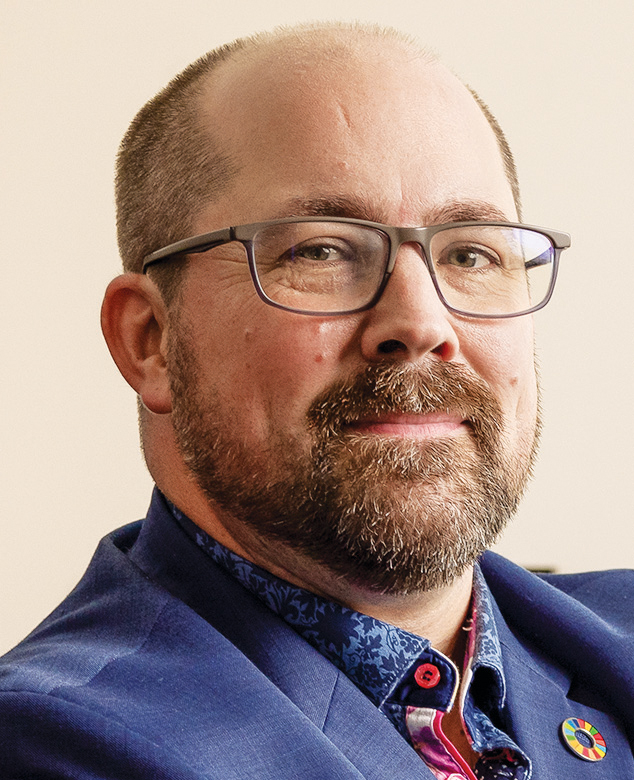The stretch from “either/or” to “both/and”
 |
| Dr Joshua Greggain |
When we live with tension, we must stretch.
When we hold opposing views, we have the chance to stretch.
When we learn new things, we are given the opportunity to stretch.
When we decide to stretch, we grow.
When we choose to stretch, we understand.
When we know how to stretch, we balance.
We are taught in medical training that there is a right answer. That if we have the right information, take the right history, perform the right examination, and order the right tests, with a mastered skill, we will come to the right diagnosis. We will unlock the diagnostic puzzle and all will be solved. Each of us has done many exams to prove this truth. Our knowledge is the power. Our information is the answer. And, if only we had more power in our understanding and information, we would be able to unlock more of the right answers. If only.
Martin Luther King Jr. said: “Power without love is reckless and abusive, and love without power is sentimental and anemic.”
Power and love: are they not the same? As an educated, white, straight, cisgender, married, professional man, I carry a lot of privilege and, ultimately, a significant amount of power. But what I do with that power is most important. Do I hold it over people, or do I use it to help empower others? And when it comes to love, I love a few people a lot. I care about many others. And I care for many more. Does that mean I can only love some of them more than the rest?
Does this mean that either I love them or I have power over them? Is it either I care for them or I want to empower them? I neither want to be reckless or abusive nor want my love to be sentimental or anemic.
Can I choose?
What if I stretch? What if I stretch to both? What if I both want to empower someone and want them to be cared for? What if I want to be both understanding and differing? What if I want to both hold the power of knowledge and exhibit compassion with love? How do I do that? Do I expect the other person to change? Can I stretch to make this a reality?
There are limits to my stretch. I may not be able to stretch across the entire spectrum. I may not be able to hold the power and love someone unconditionally. The polarity may be too much. But what if I stretch a little more each day? What if I extend my power to care for a patient in my office a little more today than I would have yesterday? What if I stretch into a little more strength when I want to be seen as more than sentimental but still ensure there is substance?
How can I find the balance of both? How can I stretch to find my voice and share my voice and extend my power and empower others and show compassion and love myself, all while ensuring I don’t stretch too much or too thin? How much stretch is too much, where I lose my power or become weakened?
I will seek to balance. I will try to stretch and aspire to find my “both/and” instead of my “either/or.”
I will seek to find that balance between love and power, and I hope that you will too.
—Joshua Greggain, MD
Doctors of BC President
hidden
 |
| This work is licensed under a Creative Commons Attribution-NonCommercial-NoDerivatives 4.0 International License. |

